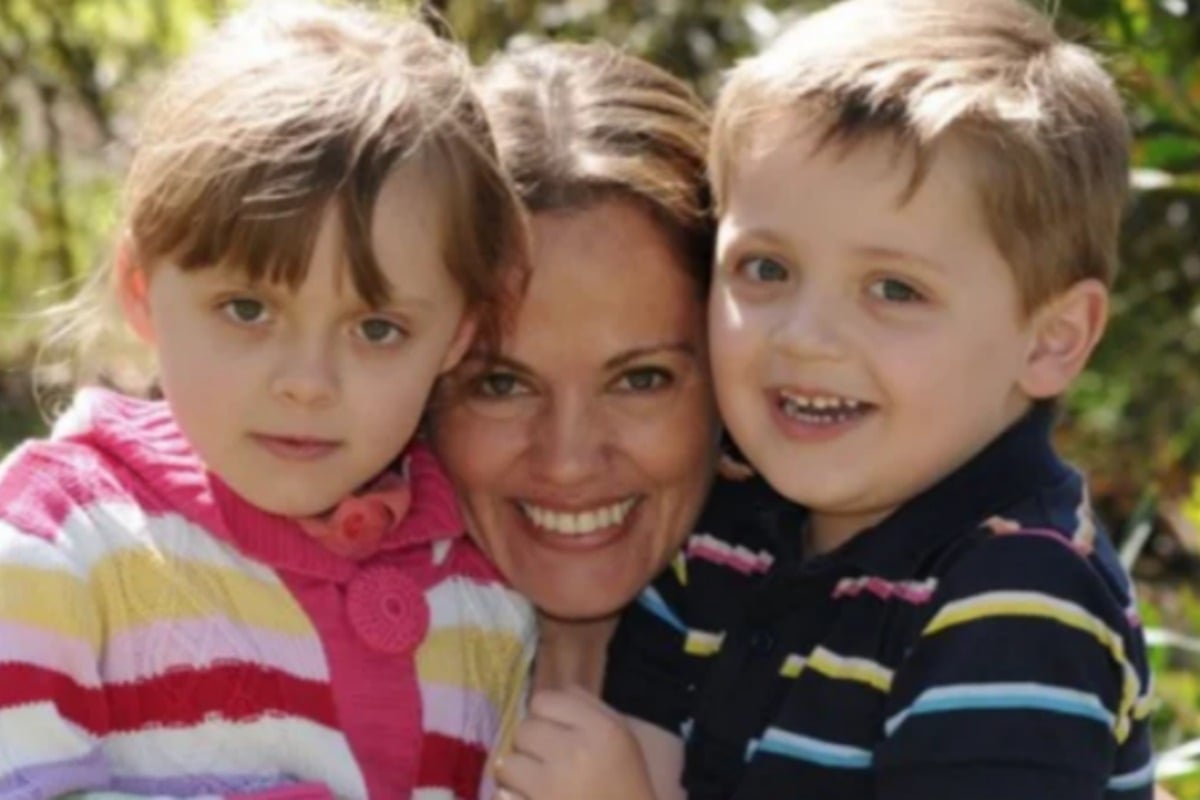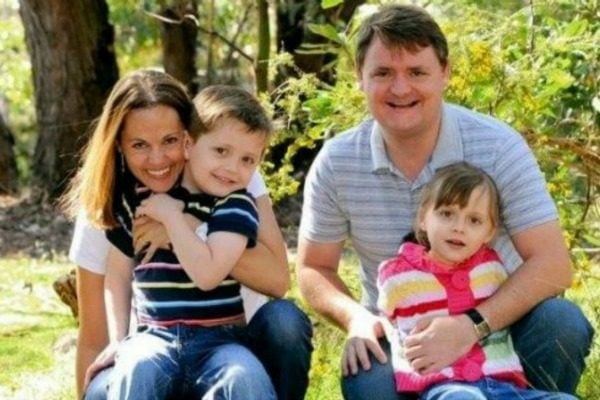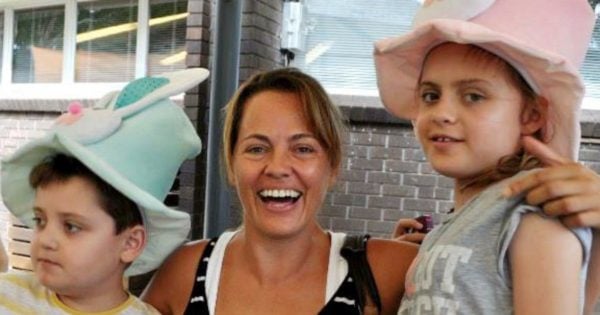
When police arrived at 68 Sir Thomas Mitchell Drive on a dreary Monday morning in October, 2016, they couldn’t have known what was waiting for them inside.
The tree-lined street overlooked a park, and the single storey brick home appeared cosy and unassuming, like any other on the corner block.
They were there because the two children, Martin and Elisa, had not arrived at school that day. In addition, their mother, Maria Lutz, never showed to the school canteen, where she was meant to be volunteering. When Nichole Brimble, a friend from the primary school, called her, Maria didn’t pick up.
So, the friend called triple zero. And the police were sent on a welfare check.
Listen to Mamamia’s daily news podcast The Quicky on the story behind the Lutz family tragedy. Post continues after audio.
The house was all locked up, and the cars were parked out the front. It wasn’t until the police opened the back gate and peered inside a window, that they realised this was not going to be the routine check they’d anticipated.
Lying on the floor face down, beneath a gently spinning ceiling fan, was Fernando Manrique.
When the police entered, they didn’t know that the cause of death was still lingering in the air, odourless and colourless.
Initial reports stated the facts.
Fernando Manrique and Maria Lutz had moved to Australia from Colombia. Fernando had studied engineering, Lutz law. Five years after arriving in Australia, where they were granted working visas then citizenship, Lutz fell pregnant with their first child, Elisa. Just over a year later, their second child, Martin was born.

It didn't take long for a line to be drawn between two high needs children, and a family who were now dead.
At first, some wondered if Lutz herself had been complicit in the murder of Elisa and Martin. Had their needs become a burden, publications at the time asked. Did the parents desperately need an out? Had they been 'driven to the edge'?
A conversation ensued about support for parents caring for children with disabilities. Was there enough respite? Was this family in particular, migrants from Colombia, too isolated? Where was the community support?


Top Comments
Yes its Lockhart shooting Geoff Hunt all over again. Another selfish, control freak male playing God with innocent lives. SO SO SAD.
I think that Geoff Hunt merits a little more compassion - there's no evidence he was having an affair and it was his wife who was ill, rather than their children. Misguided and tragic, yes, but I see why he thought it would be a mercy, as opposed to straight up selfishness as this man undoubtedly was.
So, once again what we're really looking at is a man who murdered his family because he was in a relationship with another woman. Or n this case, a teenager.
Why aren't we crying out about a paedophile who murdered his whole family?!
Absolutely, I hope he didn’t mean to kill himself and made a mistake.
No indications he was a paedophile, the teenager was 17 at the time.
I'm not sure the other women was the cause, it's all down to him and I think he would have done it whether he was in another relationship or not.
This is a very telling comment from you. A 17 year old is still pretty much a child and should not be pursued by middle aged men.
No, a 17 year old is not pretty much a child. That is above the age of consent in most first world countries, so it would take extreme circumstances to call that paedophilia.
I agree that they should not be pursued by middle aged men, but that is a separate issue.